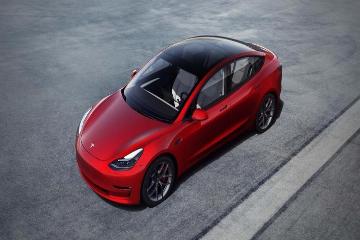Tesla's Sales Decline in the European Market
Advertisements
On February 5, 2025, reports surfaced indicating a decline in Tesla's sales across five European countries, including the UK and France, as revealed by data from New AutoMotiveThis downturn starkly contrasts with the record-high monthly electric vehicle registrations in Europe, the continent's largest electric vehicle marketIn the UK, Tesla sales plummeted nearly 12%, while France saw a staggering 63% declineSweden, Norway, and the Netherlands reported respective drops of 44%, 38%, and 42%. Moreover, sales in California, Tesla's home state, also fell by 12% during the same period.
Several factors contribute to the slowdown in Tesla's sales
Advertisements
Firstly, an influx of newer models from competitors has intensified the competition for TeslaAdditionally, public sentiment towards Tesla's CEO, Elon Musk, appears to have shifted, which could markedly influence consumer buying decisionsThe perception of a brand's leaders often plays a critical role in shaping consumer preferences, particularly in a market that values innovation and leadership in sustainability.
Tesla's ranking in the UK electric vehicle market has also seen a drastic drop, falling from second place in January 2024 to seventh place currentlyThis decline has left Tesla trailing brands such as Volkswagen, Mercedes, and Stellantis, all of which have experienced increased sales during this same periodThe competitive pressure intensifies as these brands elevate their market positions by introducing attractive and innovative products that appeal to consumers.
Industry analysts suggest that the decline in Tesla's sales cannot be solely attributed to Musk's political inclinations
Advertisements
The CEO of New AutoMotive, Ben Nelms, argues that the true root of Tesla's woes lies in its slowed pace of refreshing mainstream models since the launch of the Model Y in 2020. Tesla has failed to introduce significantly impactful new models in a timely manner, allowing competitors to nimbly meet the diverse needs of consumersIn an era where technological advancements are paramount, competition in the automotive sector transcends traditional factors like performance and price; it increasingly hinges on innovation and tech sophisticationAs consumer demand gravitates towards smart, connected vehicles, companies that can release innovative products aligning with market trends gain an upper handTesla's reliance on its established models and its lag in product innovation have become evident liabilities in the fierce competitive landscape.
Despite the setbacks in sales, Tesla's stock price has defied the odds by outperforming the market
Advertisements
Over the past year, the company's stock price more than doubled, with a current price-to-earnings ratio exceeding 131 times—a figure that not only surpasses traditional automakers but also outstrips high-tech stocks, which typically hover around 20 timesAt first glance, this phenomenon seems contradictory to the reality of declining sales, yet underlying reasons clarify this dynamicPrimarily, the market retains high expectations for Tesla's future developments, convinced that the company's investments in autonomous driving and battery technology will yield significant returnsTesla's ongoing commitment to autonomous driving innovation, despite some controversies surrounding its Autopilot system, keeps it at the forefront of the industryAs the technology continues to mature, it is poised to become a pivotal competitive edge for Tesla in the coming yearsAdditionally, Tesla’s first-mover advantage in the global electric vehicle market cements its brand recognition and market share
- Tianqi Lithium Faces Potential $1.2 Billion Loss
- Gold Prices Surge to Record Highs in January
- Dual Strategies to Bolster Cross-Border E-Commerce
- France Faces Persistent Economic Risks
- Goldman Sachs Embraces Open-Source AI
Even as competitors rise, Tesla remains synonymous with electric vehicles in the minds of consumers, retaining a strong brand equity.

Leave a Reply